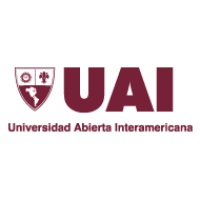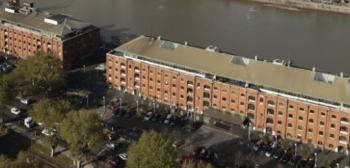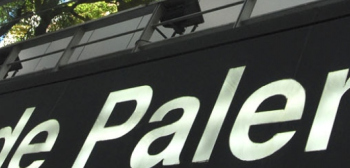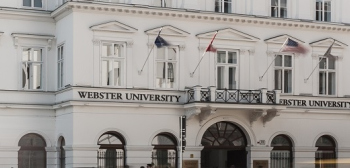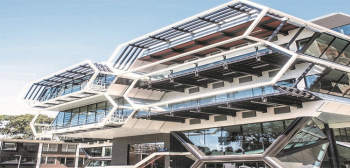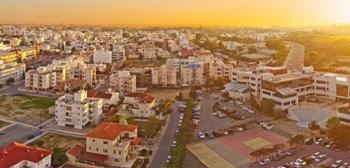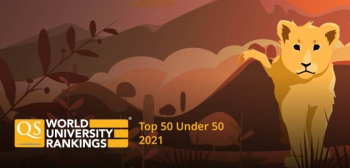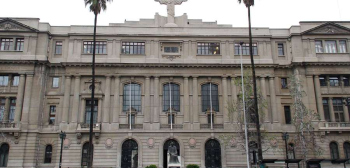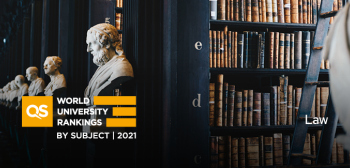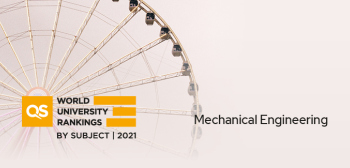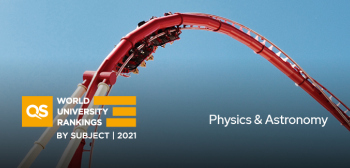- PrivateStatus
- MediumResearch Output
- 18,591Total Students
- 3,003Faculty
Whether the University is funded by the government of that country or state, or funded by private donations.
The research intensity of the University, based on the number of papers output relative to the University’s size.
The number of full time equivalent students enrolled at the University.
The number of full time equivalent teaching staff employed by the University.
Universidad Abierta Interamericana
About
From its beginnings, UAI joined several networks of national and international non-governmental organizations which adhere to the promotion of the freedom of teaching and high-quality education for all. Amongst these networks we can mention the VANEDUC Network, the Argentine Association of Private Educational Institutions (ADEEPRA), the Argentine Confederation of Private Educational Institutions (CAIEP), the Federation of Educational Associations for Latin America and the Caribbean (FAELA) and the World Educational Confederation (COMED). UAI’s active interaction with other member institutions had a significant influence on the direction taken by UAI’s institutional project.
After operating for 6 years, UAI started a process of institutional assessment before the National University Assessment and Accreditation Commission (CONEAU), obtaining the final authorization of the University in 2005, according to Executive Power Decree Nº 1082/05.
Up to 30% of UAI’s faculty get access to the academic career through public competition. All professors receive pedagogical, scientific and professional training, through annual programmes of human resource training.
In order to promote the democratization of knowledge and the accessibility to its academic offer, UAI has developed a technological platform known as the UAIOnline Virtual Campus, which enables students to take up long-distance study programmes and professional updating course.
Scientific research at UAI is mainly oriented towards application contexts, and is carried out through priority guidelines developed in two different contexts: Academic Units and Higher Studies Centres (CAE). CAE’s host the career of Scientific and Technological researchers and the training of research assistants. There are five CAE’s: the Centre for Higher Studies in Human and Health Science (CAECIHS), the Centre for Higher Studies in Education (CAEE), the Centre for Higher Studies in Information Technology (CAETI), the Centre for Higher Studies in Social Sciences (CAECS), and the Centre for Higher Studies in Architecture and City Planning.
There are internal grants for the development of research, as well as funding from external organizations and companies: the Ministry of Science and Technology (MINCyT), the National Scientific and Technical Research Council (CONICET), the Organization of American States (OAS), the Ministry of Economic Development, the Government of the City of Buenos Aires, private companies and laboratories. The research studies are published in yearbooks, scientific journals, and books edited by Schools and CAE’s through the University Publishing House. There have been numerous publications related to UAI on scientific journals known nationwide and also internationally, both in print and digital, as well as books, book chapters, conferences and congresses. UAI has registered patents and developments that are transferred to society.
The University has a network of libraries, made up by the Buenos Aires Central Library, the Rosario Central Library, the loan and reading units located on each site and building, as well as a connection to the Electronic Library of the Ministry of Science, Technology and Productive Innovation. This system is based on the centralization of technical services for a unified management of the book catalogue, and the decentralization of the services provided to the users, integral automatization, and the development of digital book catalogues for the management of knowledge.
UAI has its own Publishing House, which facilitates the publication of papers by internal and external researchers, and is conceived as a highly dynamic medium for the communication of scientific and academic topics.
It is important to point out that the management of information at UAI is carried out through technology linked through an intranet with over 3500 access points managed by SIGUE, a Central System owned by UAI. This system records and validates all aspects of academic activities, from the moment the applicant first contacts the university to the moment he or she graduates, as well as the paperwork related to the academic career of faculty members. Moreover, this centralized system is accessible online, which enables the management of academic activities for both on-campus and online courses. This promotes the ubiquity of its use, which is only limited by access permits.
About
From its beginnings, UAI joined several networks of national and international non-governmental organizations which adhere to the promotion of the freedom of teaching and high-quality education for all. Amongst these networks we can mention the VANEDUC Network, the Argentine Association of Private Educational Institutions (ADEEPRA), the Argentine Confederation of Private Educational Institutions (CAIEP), the Federation of Educational Associations for Latin America and the Caribbean (FAELA) and the World Educational Confederation (COMED). UAI’s active interaction with other member institutions had a significant influence on the direction taken by UAI’s institutional project.
After operating for 6 years, UAI started a process of institutional assessment before the National University Assessment and Accreditation Commission (CONEAU), obtaining the final authorization of the University in 2005, according to Executive Power Decree Nº 1082/05.
Up to 30% of UAI’s faculty get access to the academic career through public competition. All professors receive pedagogical, scientific and professional training, through annual programmes of human resource training.
In order to promote the democratization of knowledge and the accessibility to its academic offer, UAI has developed a technological platform known as the UAIOnline Virtual Campus, which enables students to take up long-distance study programmes and professional updating course.
Scientific research at UAI is mainly oriented towards application contexts, and is carried out through priority guidelines developed in two different contexts: Academic Units and Higher Studies Centres (CAE). CAE’s host the career of Scientific and Technological researchers and the training of research assistants. There are five CAE’s: the Centre for Higher Studies in Human and Health Science (CAECIHS), the Centre for Higher Studies in Education (CAEE), the Centre for Higher Studies in Information Technology (CAETI), the Centre for Higher Studies in Social Sciences (CAECS), and the Centre for Higher Studies in Architecture and City Planning.
There are internal grants for the development of research, as well as funding from external organizations and companies: the Ministry of Science and Technology (MINCyT), the National Scientific and Technical Research Council (CONICET), the Organization of American States (OAS), the Ministry of Economic Development, the Government of the City of Buenos Aires, private companies and laboratories. The research studies are published in yearbooks, scientific journals, and books edited by Schools and CAE’s through the University Publishing House. There have been numerous publications related to UAI on scientific journals known nationwide and also internationally, both in print and digital, as well as books, book chapters, conferences and congresses. UAI has registered patents and developments that are transferred to society.
The University has a network of libraries, made up by the Buenos Aires Central Library, the Rosario Central Library, the loan and reading units located on each site and building, as well as a connection to the Electronic Library of the Ministry of Science, Technology and Productive Innovation. This system is based on the centralization of technical services for a unified management of the book catalogue, and the decentralization of the services provided to the users, integral automatization, and the development of digital book catalogues for the management of knowledge.
UAI has its own Publishing House, which facilitates the publication of papers by internal and external researchers, and is conceived as a highly dynamic medium for the communication of scientific and academic topics.
It is important to point out that the management of information at UAI is carried out through technology linked through an intranet with over 3500 access points managed by SIGUE, a Central System owned by UAI. This system records and validates all aspects of academic activities, from the moment the applicant first contacts the university to the moment he or she graduates, as well as the paperwork related to the academic career of faculty members. Moreover, this centralized system is accessible online, which enables the management of academic activities for both on-campus and online courses. This promotes the ubiquity of its use, which is only limited by access permits.
University highlights
- 2024#251-300
- 2025#251-300
Campus locations
Cisneros Annex,
Av. Montes de Oca 745 , City of Buenos Aires , Argentina , 1287
South,
Av. Hipolito Yrigoyen 9963 , Lomas de Zamora , Argentina , 1834
San Nicolás Delegation,
Don Bosco 80 , San Nicolás , Argentina , 2900
Roca,
Av. Pellegrini 1618 , Rosario , Santa Fe , Argentina , 2000
Presidency and Head Office,
Chacabuco 90 - 1° Floor , City of Buenos Aires , Argentina , 1069
Pellegrini,
Av. Pellegrini 1957 , Rosario , Santa Fe , Argentina , 2000
Ovidio Lagos,
Ovidio Lagos 944 , Rosario , Santa Fe , Argentina , 2000
North,
B.de Irigoyen 696 , Boulogne, San Isidro , Argentina , 1609
Ituzaingó II,
24 de Octubre 569 , Ituzaingó , Argentina , 1714
Ituzaingó I,
General Alvear 1075 , Ituzaingó , Argentina , 1714
Centre,
San Juan 951 , City of Buenos Aires , Argentina , 1147
Central Library,
Av. Montes de Oca 745 , City of Buenos Aires , Argentina , 1287
Castelar,
Arias 3550 , Castelar , Argentina , 1714
CUT - Tigre,
Newton y Solís , Tigre , Argentina , 1618
CESYT UAI,
Don Bosco 159 , San Isidro , Argentina , 1642
Berazategui,
Calle 14 y Av. Mitre , Berazategui , Argentina , 1880
Belgrano,
Montañeses 2759 , City of Buenos Aires , Argentina , 1428
Almagro,
Palestina 748 , City of Buenos Aires , Argentina , 1182
Administrative Headquarters,
Av. Pellegrini 1816 , Rosario , Santa Fe , Argentina , 2000
Similar Universities
Pontificia Universidad Católica Argentina
Av. Alicia Moreau de Justo 1600, Buenos Aires
=344 QS World University RankingsWebster Vienna Private University
Palais Wenkheim, Vienna
Universidad Popular Autonoma del Estado de Puebla (UPAEP)
21 sur 1103 Barrio Santiago, Puebla
4 QS starsUniversity of Diyala
Diyala province, Baaquba
Test preparations
Featured University


-
10 UG & 47 PGTotal courses
-
PrivateStatus
-
HighResearch output
